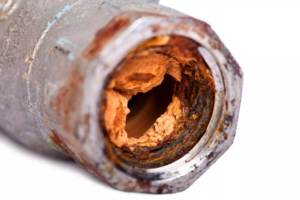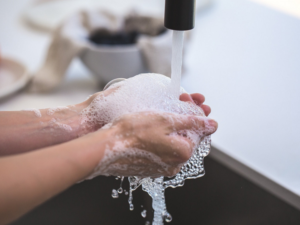Table of Contents

The water softening system needs to be more knowledgeable about the salt shortage in the tank.
So there is a high possibility that the system will go on a regeneration process unassisted.
Furthermore, the ionization process will eventually stop, and you will face a certain issue discussed in detail in this work.
If you’re wondering about the edibility of water softener salt, find out more in our article on is water softener salt edible, and learn what happens if your water softener runs out of salt.
What Are The Consequences If The Water Softener Runs Out Of Salt?
If you’re concerned about what may happen if your filtration system runs out of salt, keep an eye out for these things:
The Water Tank Overflow
It is the most undesirable possible outcome, though rarely the most prevalent, whenever the salt supply goes dry. This problem is much more general in outdated models than in modern, electric ones. To prevent water from flowing out, the valve is present in the device that you can shut off.
Pipes Accumulating Limescale
Dissolved salts are a very problematic by-product of hard water. Even if you put in a great effort, you will only remove the stains from the areas you can access. However, the limescale accumulation in the pipelines is hopeless. This accumulation is prevented or reduced to a minimum with the help of a water softener. A water softener helps prevent scaling buildup on drainage pipes by removing the particles contributing to it.
Check out our article on what my water softener hardness should be set at to ensure your system’s efficiency.
No More Lather From The Soap
The soap soaks better in soft water. That is why magnesium and calcium, responsible for slime formation, are absent in soft water. In contrast, you’ll discover that more soap is required while working with hard water. Similarly, the slime that moisture creates is persistent and challenging to eliminate. Soften the soap before using it over your sensitive skin since hard water may irritate even the most resilient complexions.
Damage To Other Things
Clumps of bad water discolor the glass door for showers. You can not clean them anymore up to the hundred percent. So, you’ll have to spend more money on a replacement than a simple salt swap with a water softener. A little layer of white crud on the faucet or basin may be found, which is also bad.
Should You Use Regular Table Salt Instead?
Individuals may go for a box of table salt for a fast cure. However, there are subtle differences between salts. The salt utilized for softeners comes in different forms. Vendors of water softeners do not advise using table salt in them. The problem is that the particles in table salt are substantially larger than the salts used for those in water softeners.
There is one more question here that Is Water Softener Salt Edible? You can find the easy answer to this question here.
Will A Salt-Free Water Softener Work?
Most common devices need salt to clean and soften water. If the salt supply runs out, it will no longer be able to stop hard water from entering the pipelines. Although salt-free devices are available, they generally remove contaminants instead of softening them. Sometimes they help, but usually, the hard water still has an impact.
How Do You Check To See If Salt Is Low In The System?
The tank in the device contains the salt required to make the brine and must be regularly refilled. The salt level in the tank has to be around half full, and the salt must not seem damp. Sodium chloride is used in many filtration systems, and one may select one that works best for them. If the manufacturer has any preferred system configurations, you should contact them directly.
If you’re curious about the lifespan of water softeners, explore our article on how long do water softeners last to understand the longevity of these essential appliances.
Conclusion
Investing in a filtration system may yield rewards in improved hygiene since the particles that clog pipelines and harm equipment are flushed away. The salt is used to soften water leaving behind water that is more pleasant to drink and use in washing.


